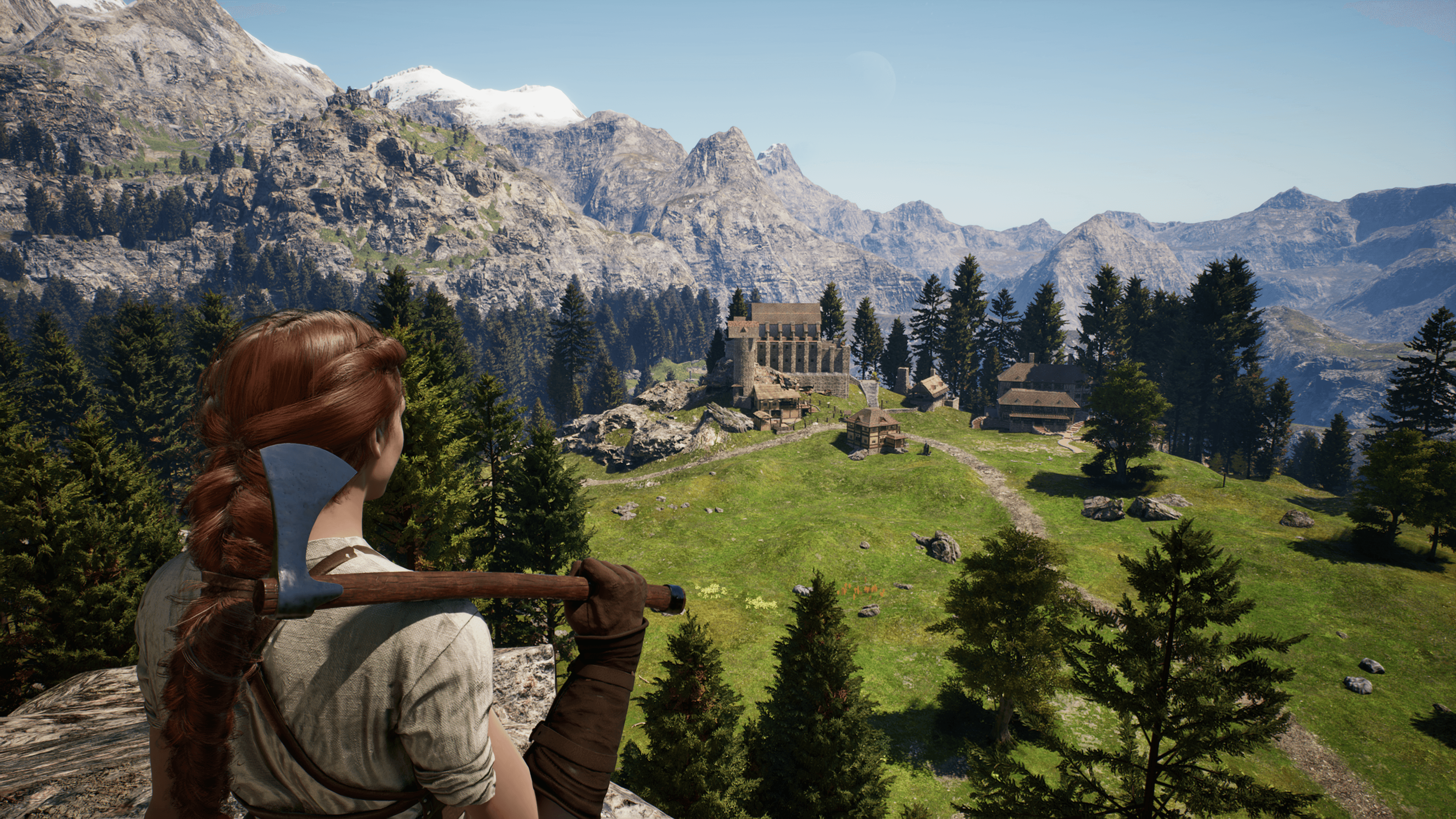
The game we’re making, part 1: The vision behind Pax Dei
Hello, again Paxians,
With Early Access right around the corner, we wanted to restate the vision behind our game. Pax Dei is an unusual game, and we’re getting many questions about what it is exactly.
This article aims to tell you more precisely what Pax Dei is, and we will start with what it is NOT - not because it is funnier like that, but to be sure you won’t feel misled. In the second part, we’ll discuss the current state of the game and our plans for the coming months.
Pax Dei is not a theme park MMO.
We do not have NPCs with yellow exclamation marks telling you they’ve lost a daughter in the woods. There is no linear, scripted gameplay that forces players into fixed group sizes or private instanced dungeons.
Zones and gear are not gated behind minimum-level requirements. There are great games out there that do this, but this is not what Pax Dei is about. In Pax Dei, the world itself is a mystery. Nobody holds your hand, and you can venture as deep as you want - at your own peril.

Pax Dei is not a medieval simulator.
While inspired by the European Middle Ages and the mythology and superstitions of the time, Pax Dei does not attempt to be historically accurate and does not take place in our real world. Ours is a world where the myths, magic, miracles, and monsters of that era are actually real, which in turn reflects the ground truths of being alive during those times.
Pax Dei is not a survival game.
Yes, Pax Dei features a lot of gameplay that is similar to games in the survival genre. Your character starts with nothing, but you won’t starve from not eating or not sleeping. A big part of Pax Dei revolves around crafting and building, but players and NPCs can’t raid your home.
While Pax Dei and the survival genre share some similarities, we didn’t design it as a survival game. Once the social fabric is established, once some clans rule some valleys, the game will drastically depart from the survival genre.
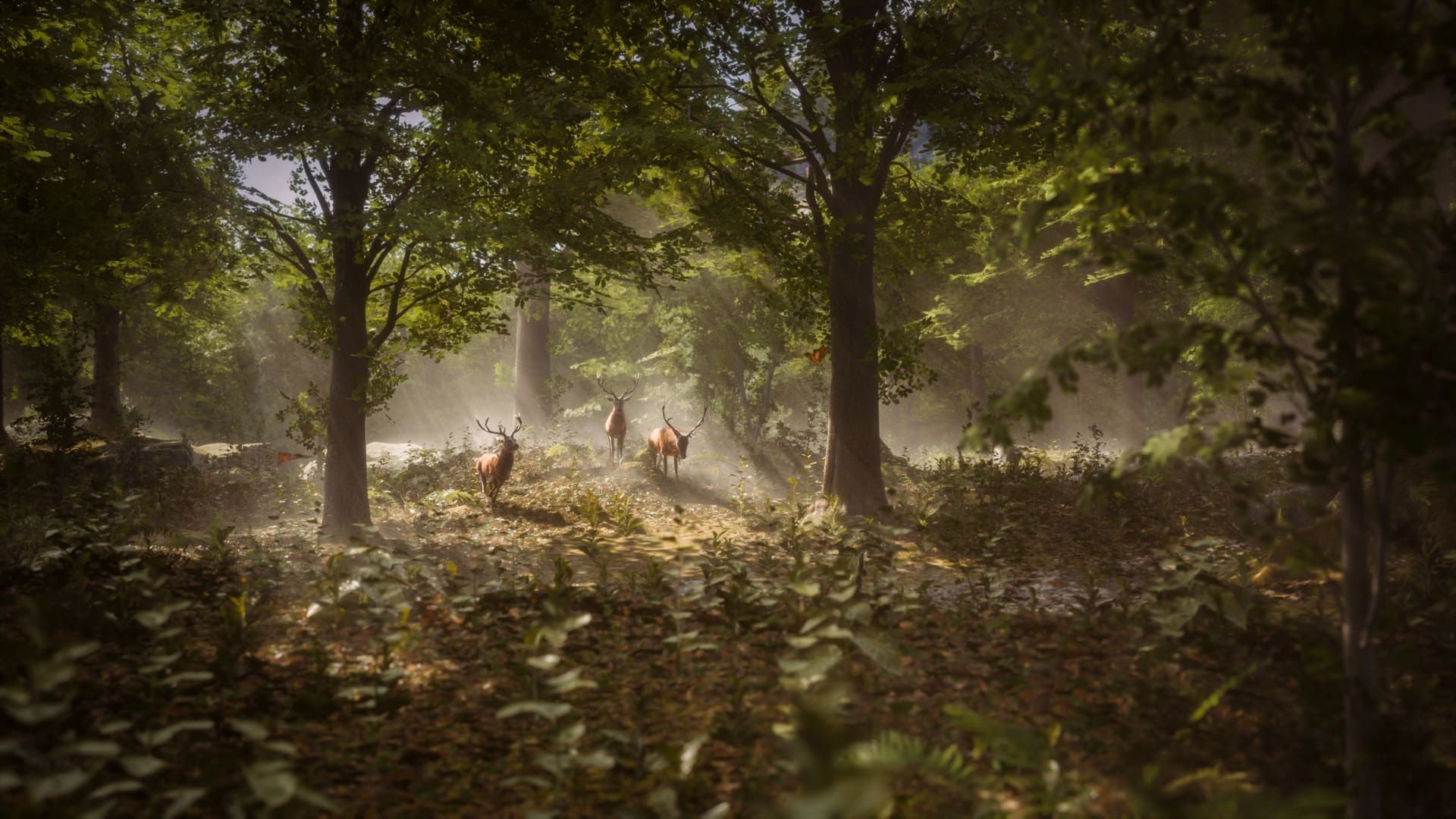
Pax Dei is not a fast-paced game.
In Pax Dei, you won’t be able to rush through the content to reach the maximum level in a week. There is no character max level. You also won’t be able to find wild animals behind each tree or some clearings with all the primary resources close to your starting point.
Instead, you will learn your surroundings, the landscape, the shortcuts, and where to find good spots for resources - and share them (or not) with your Clan or this friendly neighbor who often passes by to check if you need something.
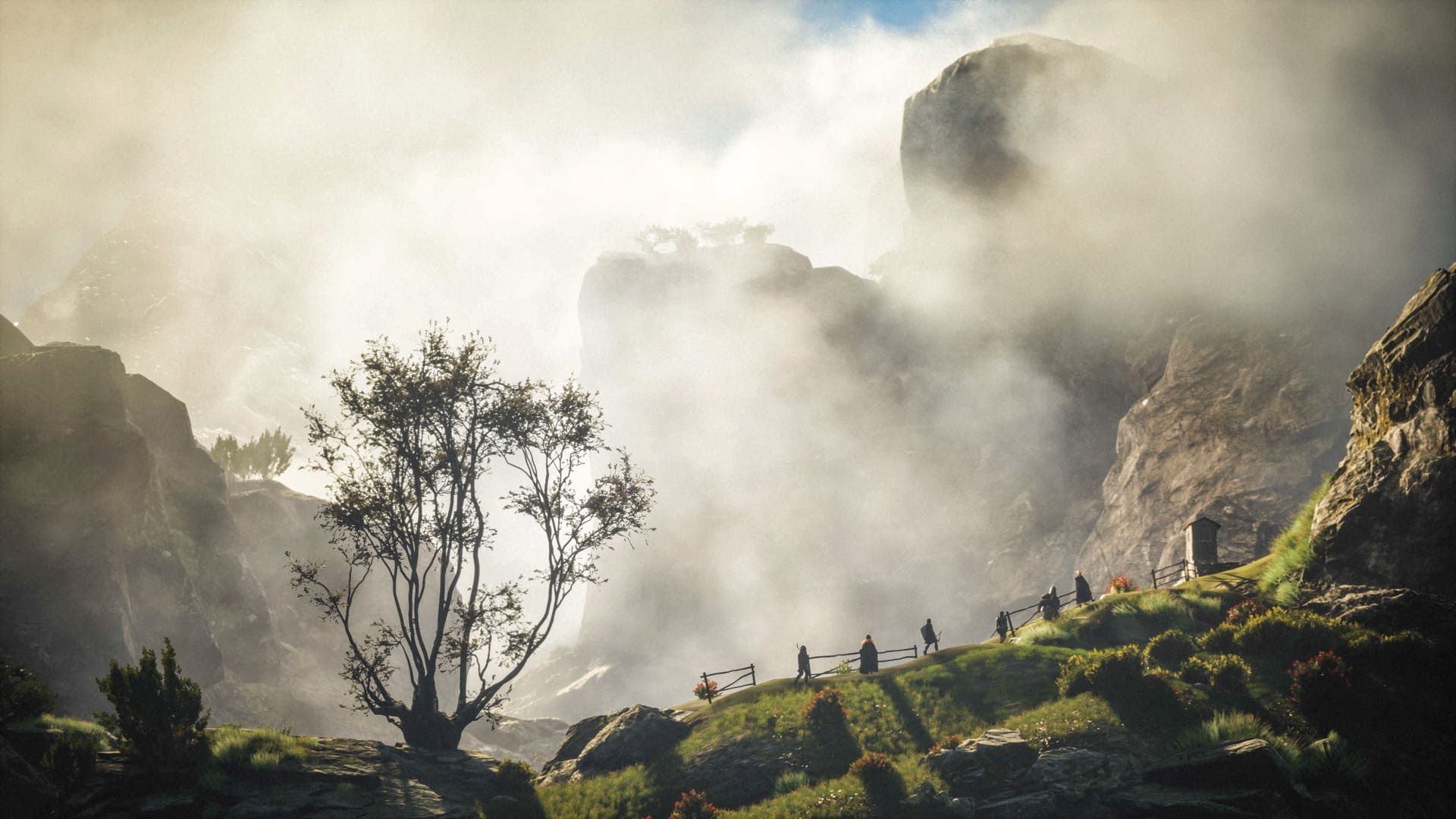
In Pax Dei, expect things to take time. Building a castle takes a lot of effort. So does making gear that enables you to go to a deep dungeon run. The world is vast, and travel takes time, so exploring the whole Creation is a huge challenge.
We want Pax Dei to become a living shared world that can give you thousands of hours of joy, alone or with friends (old or new), at your chosen pace.
Pax Dei is not a single-player game.
A kingdom of one has no true king. We do want the soloing experience to be highly enjoyable, and you can play without joining a Clan. That being said, we designed Pax Dei to encourage group play, and the harshest corners of the game cannot be soloed.

At its core, Pax Dei is about playing in a world shared with other players, offering ways for different play styles to connect and complement each other. We believe where Pax Dei will truly shine is in these social interactions between players, whether in cooperation or conflict, structured or unstructured, planned or emergent.
What Pax Dei is
Social Sandbox MMO
Pax Dei is an entirely non-linear game where everything happens in the (open) world itself. There are no per-party instancing mechanics like instanced dungeons, and there are no areas that remove the players from the shared playground.
You build your home inside the world itself for everyone to see and visit. You can travel the world freely and visit other players and their villages, trade with them, or join up for adventure with people you meet randomly in the wild. The goal here is to maximize the opportunities for meaningful social interaction.
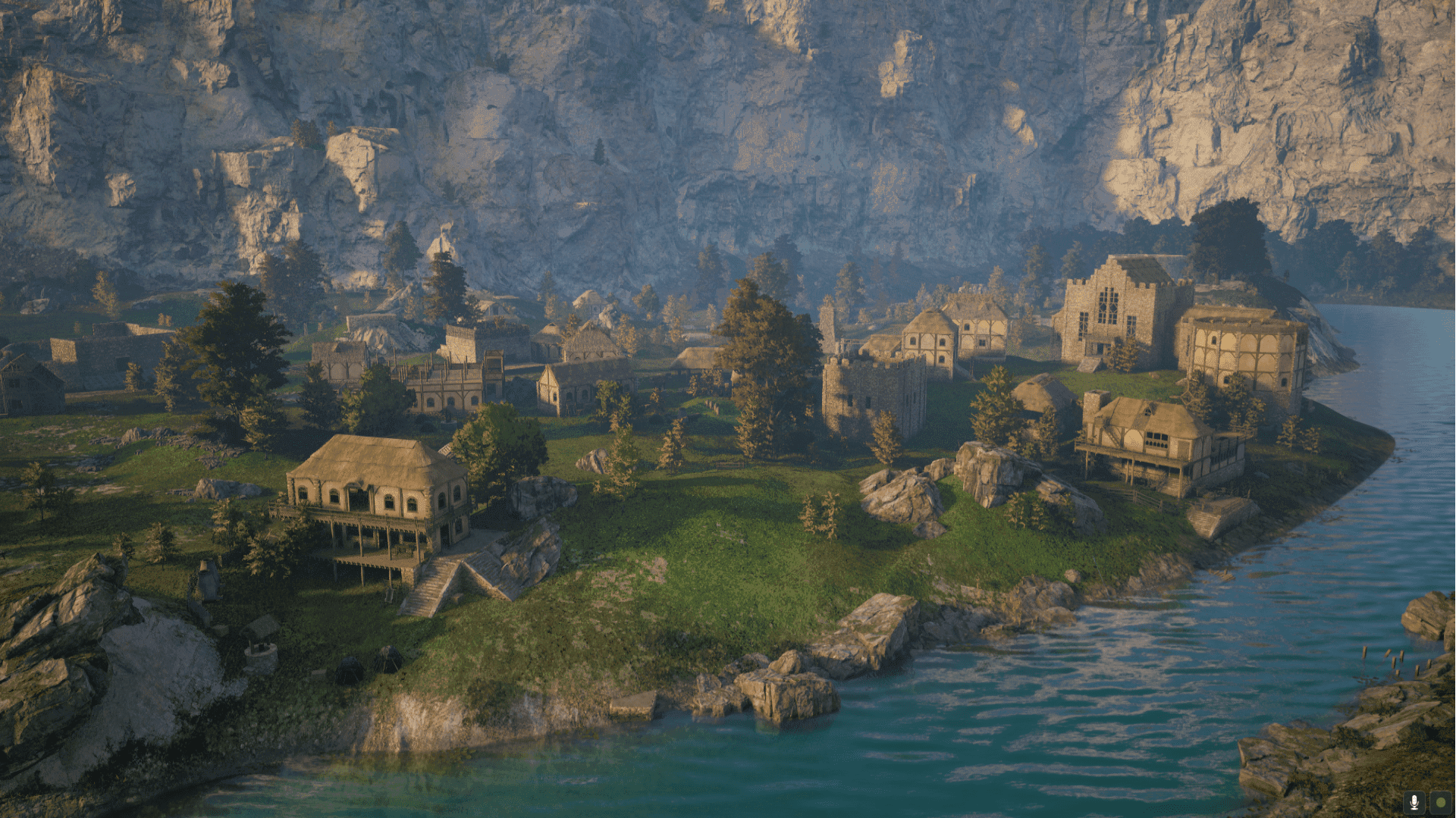
Game Pillars
Pax Dei is structured around three distinct game pillars, which map to different play styles but are all eventually entwined indirectly.
In the Heartlands, the (mostly) peaceful Homestead gameplay loop is about resource collecting, crafting, and building your home.
Adventure gameplay will bring you into the Wildlands, to prove yourself in PVP and PVE combat and earn rare resources.
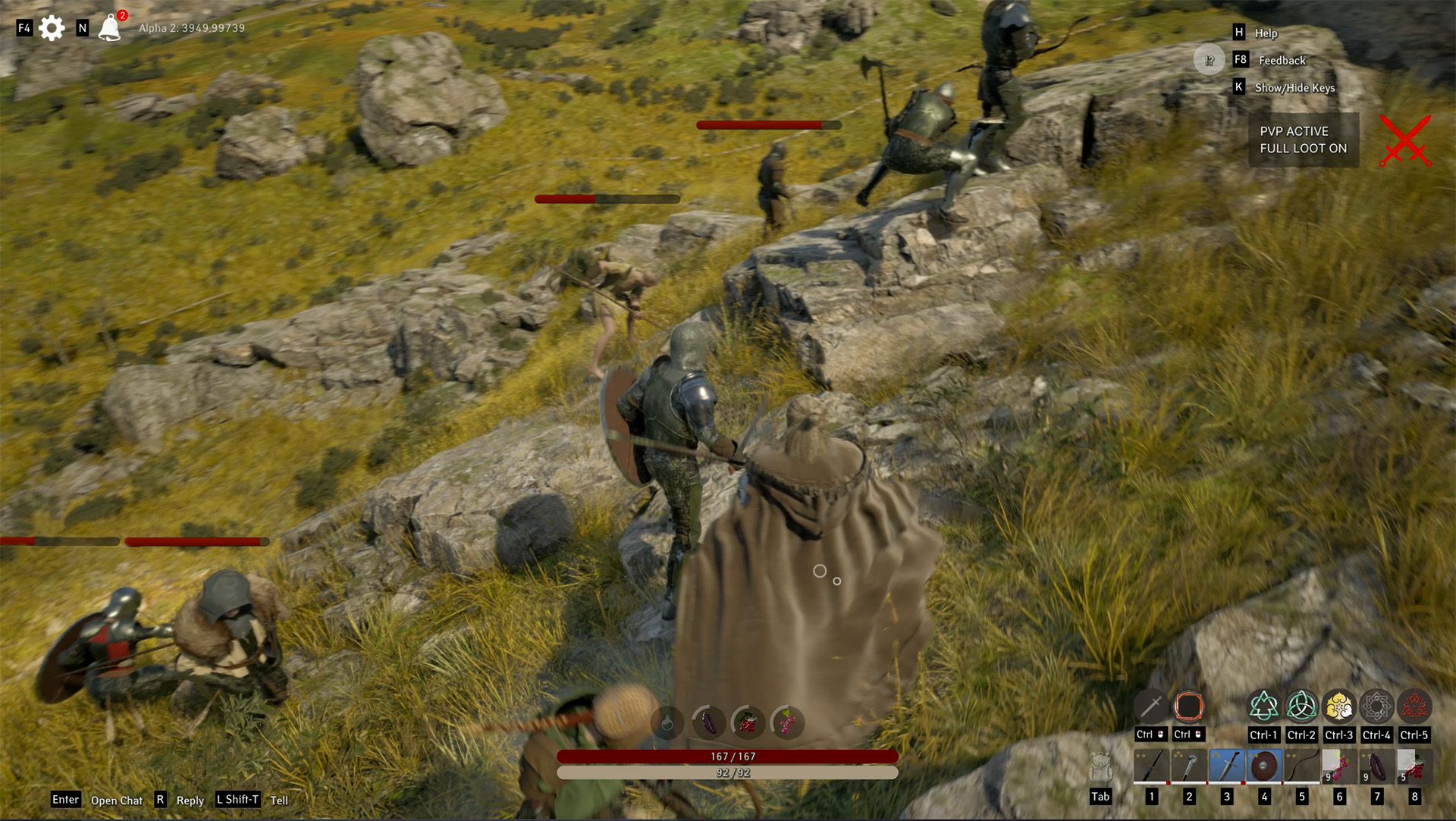
Last but not least, the Civilization-level gameplay will allow large numbers of players to come together for a common purpose, whether cornering the market on morel production, building a Cathedral, or declaring war on a rival kingdom.
No matter how you decide to play, we want Pax Dei to feel enjoyable and meaningful - whether that’s being the best blacksmith in your valley or the most ruthless PvPer on the shard.
A living world
What we strive to build with Pax Dei is a living, breathing world. A world that comes alive through the actions of its players working together or against each other. A place where you can build your homestead, set up your smithy, or keep your Inn. A place of emergent civilizations. With towns and cities. With vibrant trade and artisan guilds. With churches and cathedrals, forts and castles. Where players can build kingdoms, gather armies of knights, and go to war… or sell flowers on the market. Pax Dei is what you make of it.
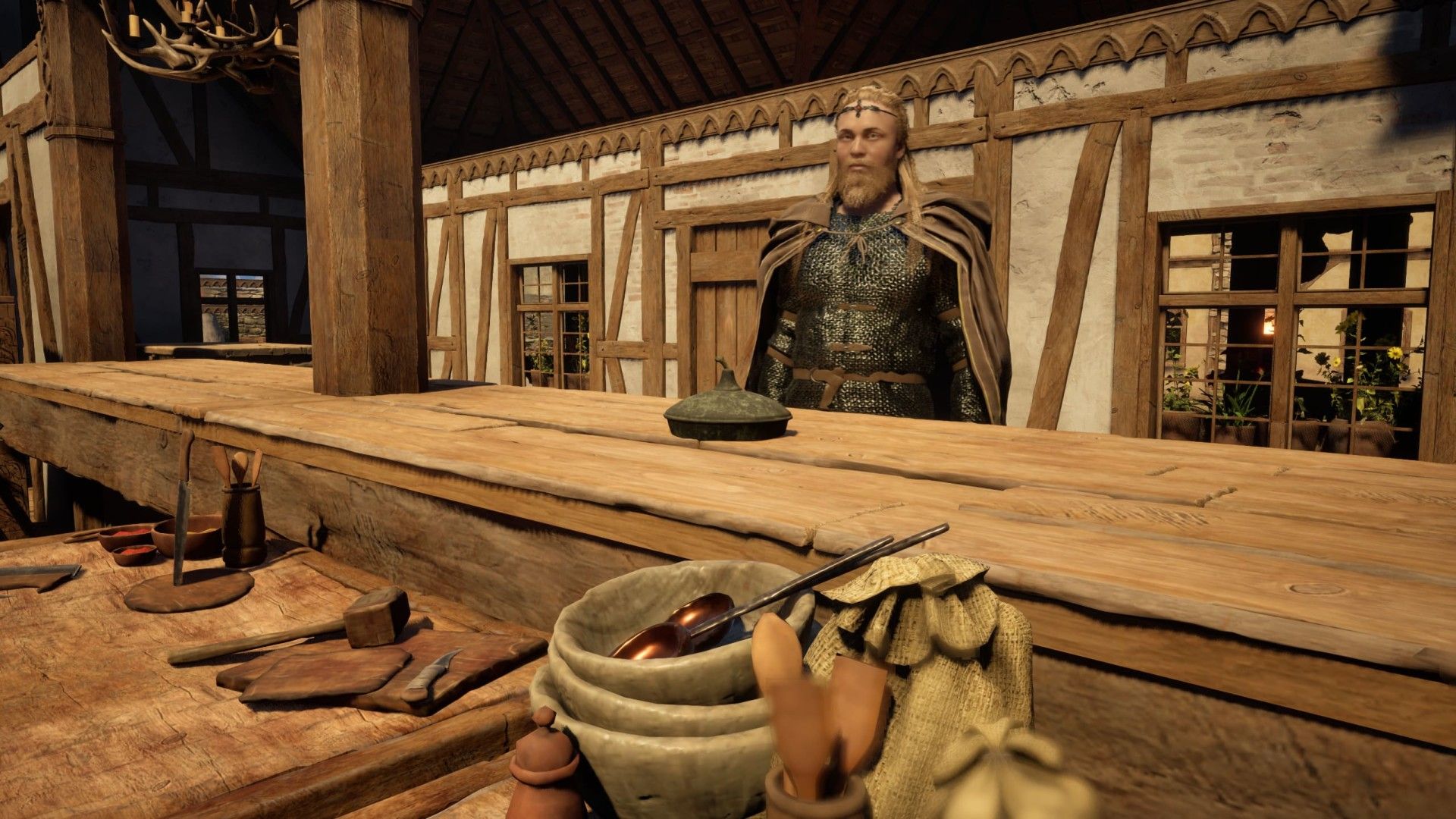
—
We hope this manifesto has given you a good grasp of our vision for Pax Dei. In just a few weeks, the game and the world will feel and look very different once clans and other social structures are firmly established.
Some valleys will be crowded with houses and forts, with plenty of opportunities for trade and social interactions; mercenary clans will offer their services to recover valuable inventory in deep dungeons, and scavengers in underpants will lurk in Lyonesse for unfortunate adventurers to loot!
The moon, though, will still bring comfort at night, and the sun will still light the world.
Stay tuned for part 2. It should come… before too long!
Pax vobiscum
- The Mainframe team